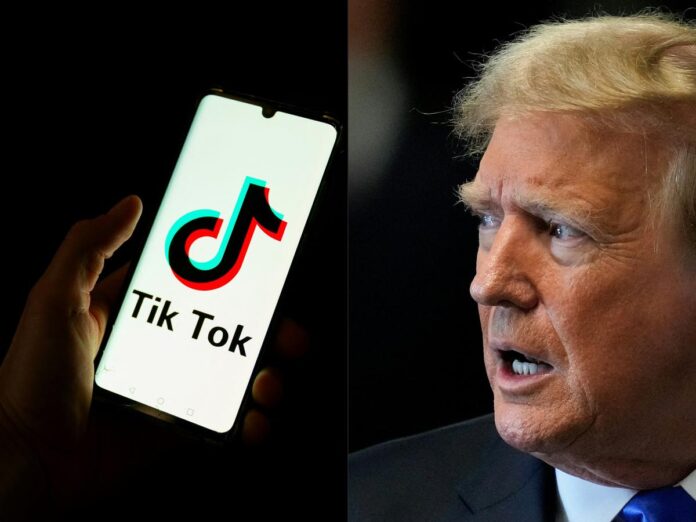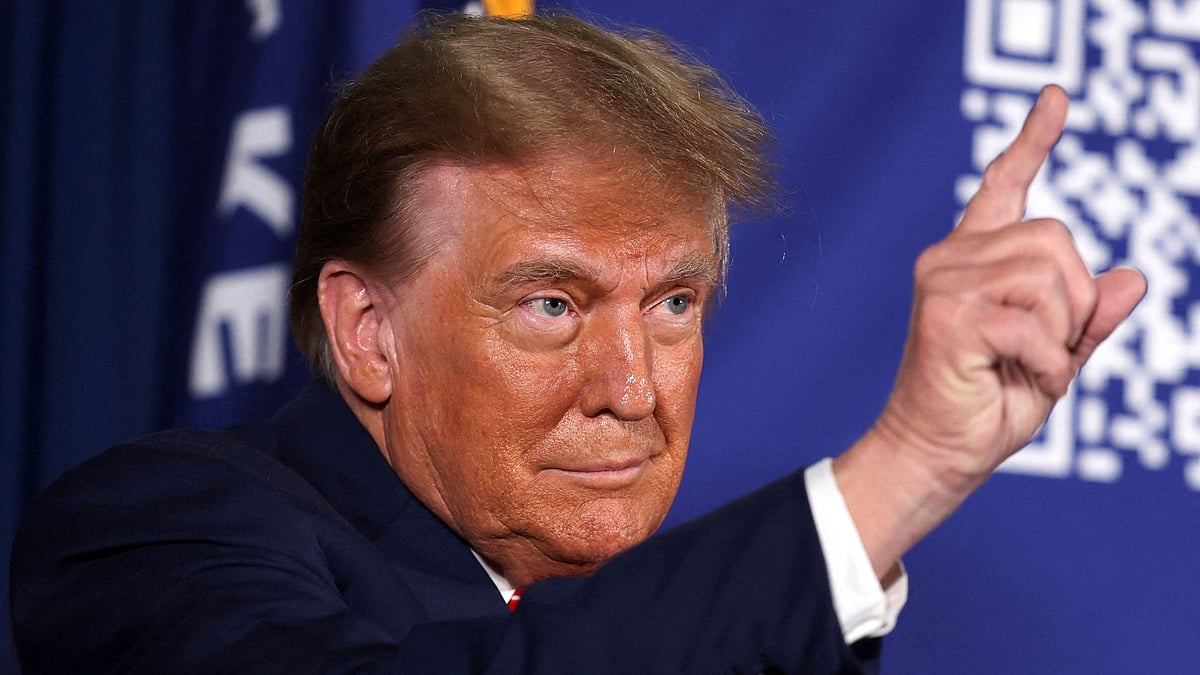TikTok Ban Trump: President-elect Donald Trump has urged the US Supreme Court to pause the implementation of a newly enacted law that could lead to TikTok’s ban or force its sale to an American company. Trump has emphasized that he needs time after taking office to pursue a “political resolution” to address the complex issues surrounding the platform and its Chinese ownership.
The law, passed recently, requires ByteDance, TikTok’s Chinese parent company, to sell the platform to a US-based entity or face a nationwide ban. The move has sparked widespread debate over national security concerns, data privacy, and its implications for US-China relations.
Details Of The TikTok Ban Law
The TikTok ban law has emerged as a focal point in discussions about data security and geopolitics.
- Allegations Against TikTok:
- TikTok has been accused of sharing user data with the Chinese government, a claim that ByteDance has consistently denied.
- These allegations have prompted calls for stricter regulations and a potential ban on the platform.
- Law’s Provisions:
- The law mandates ByteDance to either sell TikTok to an American company or face a ban in the United States.
- It aims to address national security concerns but has raised questions about the impact on users and businesses.
- Scope Of The Ban:
- If implemented, the ban would render TikTok inaccessible in the US, forcing millions of users and businesses to seek alternatives.
Trump’s Appeal To The Supreme Court
Trump’s request to delay the law highlights his intention to address the issue diplomatically and strategically.
- Call For A Political Resolution:
- Trump has argued that immediate enforcement of the law would prevent his administration from exploring diplomatic solutions.
- He seeks a pause to evaluate the implications of the ban and negotiate with ByteDance.
- Balancing National Security And User Interests:
- Trump’s approach reflects a desire to balance national security concerns with the platform’s economic and cultural significance.
- US-China Relations:
- Delaying the law’s implementation could help manage tensions between the US and China, providing room for constructive dialogue.
Impact On TikTok Users And Businesses
The potential ban on TikTok would significantly impact its user base and the businesses that rely on the platform.
- Effect On Creators:
- Millions of content creators use TikTok for entertainment, brand collaborations, and income generation.
- A ban would disrupt their reach and revenue streams, pushing them to other platforms.
- Businesses Relying On TikTok:
- Many small and medium enterprises use TikTok for marketing and audience engagement.
- The ban would force them to rethink their strategies and adopt alternative platforms like Instagram Reels or YouTube Shorts.
- Cultural And Social Implications:
- TikTok has become a cultural phenomenon, influencing trends and fostering online communities.
- Its absence would leave a void in the digital landscape.
ByteDance’s Stance On The Law
ByteDance has consistently denied allegations of data misuse and expressed its willingness to cooperate with US regulators.
- Proposed Solutions:
- ByteDance has proposed measures to enhance transparency and address data security concerns.
- These include setting up data centers in the US and allowing audits of its operations.
- Response To The Law:
- ByteDance is exploring legal options to challenge the law while remaining open to negotiations.
- Global Implications:
- The outcome of this case could set a precedent for how countries handle foreign-owned digital platforms.
Political And Legal Challenges Surrounding TikTok
The TikTok ban law has sparked debate among lawmakers, businesses, and the public.
- Bipartisan Concerns:
- While both parties agree on the need to address data privacy, opinions differ on the method of enforcement.
- Legal Complexities:
- The Supreme Court’s decision on Trump’s appeal will have far-reaching implications for the platform’s future.
- Public Reaction:
- Many users and advocacy groups have criticized the ban, citing concerns over censorship and freedom of expression.
Historical Context Of US-China Technology Disputes
The TikTok controversy is the latest in a series of disputes between the US and China over technology and trade.
- Previous Bans And Restrictions:
- The US has previously imposed restrictions on Chinese tech firms like Huawei and ZTE.
- These actions reflect broader concerns about Chinese influence in critical sectors.
- Role Of Data Privacy:
- Data security has become a key issue in US-China relations, influencing policies on technology and trade.
- Implications For Global Tech Industry:
- The handling of TikTok could shape the future of international regulations on digital platforms.
What Lies Ahead For TikTok In The US+
The future of TikTok in the US remains uncertain, with various possible scenarios:
- Forced Sale To A US Company:
- ByteDance may comply with the law by selling TikTok, allowing it to continue operations in the US.
- Negotiated Settlement:
- Trump’s appeal could lead to a compromise that addresses security concerns without a complete ban.
- Platform Ban:
- If no resolution is reached, TikTok could be banned, disrupting millions of users and businesses.
Broader Implications Of The TikTok Ban
The TikTok case underscores the complexities of balancing national security, economic interests, and user rights.
- For The US Tech Industry:
- The decision will influence how the US regulates foreign-owned platforms and handles data security.
- For International Relations:
- The case highlights the growing role of technology in geopolitical disputes.
- For Digital Platforms:
- The outcome could set a precedent for how countries manage the operations of foreign-owned apps.
The Supreme Court’s decision on Trump’s appeal will shape the future of TikTok in the US and influence broader discussions on technology, privacy, and international relations. The case reflects the challenges of navigating the intersection of innovation and regulation in an increasingly interconnected world.



